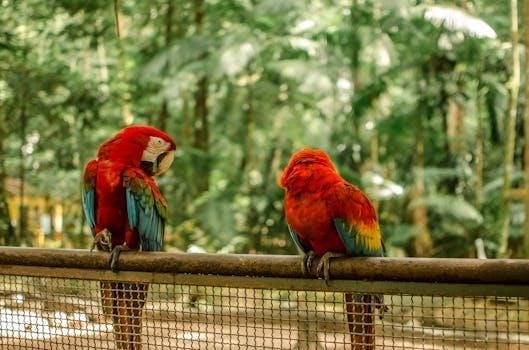Introducción⁚ Uso de Semillas como Desparasitantes
The exploration of natural deworming agents is gaining momentum, and seeds are emerging as a promising alternative. Research focuses on understanding the effectiveness of various seeds against gastrointestinal parasites, offering accessible and economical solutions.

Semillas de Calabaza (Cucurbita maxima) como Desparasitante
Cucurbita maxima, commonly known as pumpkin seeds, has demonstrated potential as a natural dewormer. Studies explore its antiparasitic effects, particularly against intestinal worms. This makes it a valuable option for managing parasites.
Efectividad de la Semilla de Calabaza en Terneros
Research indicates that pumpkin seeds may offer a natural deworming solution for calves. A study evaluated the impact of Cucurbita maxima seeds on internal parasites in young calves aged 3-8 months. The aim was to determine if pumpkin seeds exhibited any sensitivity towards internal parasites in calves. This research is geared to give small producers alternatives.
The intention is to provide alternatives to traditional chemical treatments, which can be costly and have potential side effects. The use of pumpkin seeds could present a cost-effective and accessible option for parasite management.
The study aims to discover the sensitivity that internal parasites of calves may have to pumpkin seeds. The goal is to offer small producers alternatives to manage internal parasites.
Estudios Preclínicos de Cucurbita Maxima
Preclinical studies on Cucurbita maxima, commonly known as pumpkin seeds, have explored its traditional use as an intestinal antiparasitic in urban and rural areas. Research suggests that pumpkin seed oil possesses anti-inflammatory properties, demonstrating a notable reduction in induced edema in rat paws compared to diclofenac, a standard anti-inflammatory drug.
A study reported that mild gastritis was observed as a reaction to pumpkin seeds at a dose of 9 g/kg of body weight in experimental rats. Further research is recommended to evaluate the antiparasitic effect of Cucurbita maxima against protozoa.
The study suggests promoting the use of Cucurbita maxima as an antioxiuratic therapy at its minimum inhibitory concentration (MIC) of 23 grams.
Semillas de Papaya (Carica papaya) como Desparasitante
Papaya seeds are under investigation for their potential as a natural dewormer. Studies explore their effectiveness against parasites, highlighting their accessibility and affordability.
Efectividad de la Semilla de Papaya en Perros
Research indicates the potential of papaya seeds as a natural dewormer for dogs. Studies focus on evaluating the efficacy of powdered papaya seeds against common gastrointestinal parasites in canines. The goal is to find an economical and accessible alternative to traditional deworming medications.
One study examined the impact of papaya seed powder, alongside paico infusions, on canine parasitic infections. The research sought to determine if these natural remedies could effectively combat parasites, offering a cost-effective solution for pet owners. The investigation considered different dosages and administration methods to optimize the deworming effect.
These investigations aim to establish papaya seeds as a viable option for maintaining canine health, especially in communities where conventional veterinary care is limited. Further studies are needed to validate these findings and standardize the use of papaya seeds as a reliable deworming agent for dogs.
Semillas de Papaya en Polvo para la Salud Intestinal
Papaya seed powder is gaining attention for its potential benefits in promoting intestinal health. Research suggests that its natural enzymes, particularly papain, can aid digestion and support a healthy gut environment. The powder is explored as a natural remedy to address digestive issues and promote overall wellness.
Studies highlight the potential of papaya seeds for detoxification and intestinal cleansing. The compounds present in papaya seeds may help eliminate harmful substances from the body, contributing to a healthier digestive system. The powder form offers a convenient way to incorporate these benefits into one’s diet.
Papaya seed powder’s ability to support intestinal health may stem from its antiparasitic properties. By combating intestinal parasites, it can create a more favorable environment for beneficial gut bacteria to thrive. This multifaceted approach positions papaya seed powder as a promising natural supplement for intestinal well-being.
Neem (Azadirachta indica) como Desparasitante
Neem, or Azadirachta indica, is investigated for its deworming properties. Studies explore neem extracts’ effects on gastrointestinal parasites. This natural approach could offer a sustainable solution for parasite control in livestock and potentially humans.
Efecto del Extracto de Neem en Estróngilos Gastrointestinales
Research evaluates neem extract’s impact on gastrointestinal strongyles, common parasites affecting livestock. Studies investigate how neem extracts influence egg hatching and larval development. Aqueous extracts at varying concentrations, such as 500 mg/ml, 250 mg/ml, and 125 mg/ml, are prepared from neem leaves and seeds.
Experiments are designed to understand the effectiveness of these extracts in controlling strongyle populations. The goal is to determine if neem can serve as a natural dewormer. This approach explores sustainable alternatives to traditional chemical dewormers. Neem’s accessibility and potential for reducing reliance on synthetic drugs make it an attractive option. The research aims to provide insights into neem’s antiparasitic properties and its potential applications in animal health management. Further investigation is needed to optimize neem extract formulations and dosages for effective parasite control.

Otros Desparasitantes Naturales
Beyond pumpkin, papaya, and neem, other natural options exist for combating parasites. Plants like paico offer alternative deworming properties. These natural remedies present diverse options for holistic parasite management.
Paico (Chenopodium ambrosioides) como Desparasitante
Paico, scientifically known as Chenopodium ambrosioides, presents itself as another natural anthelmintic, traditionally employed across different cultures. Research into paico reveals its potential as a deworming agent, particularly its leaves and seeds. Studies have investigated the effectiveness of paico infusions against gastrointestinal parasites in animals, aiming to validate its traditional use and identify its active compounds responsible for the antiparasitic effects.
The plant’s accessibility and ease of preparation make it an attractive alternative for populations seeking cost-effective deworming solutions. However, careful consideration of dosage and potential toxicity is crucial when using paico. Further research is needed to optimize its application and ensure safe and effective use as a natural dewormer;
Investigations explore its impact on various parasites, contributing valuable insights into its potential as a sustainable and accessible deworming option; The integration of paico into parasite management strategies warrants further exploration, balancing its benefits with responsible usage.

Metodologías de Evaluación de la Eficacia Desparasitante
Evaluating deworming efficacy requires rigorous methods. Coproparasitological exams, repeated over consecutive days, help determine parasite presence. These assessments are crucial for validating natural dewormers, like seed extracts, and their effectiveness.
Examen Coproparasitológico Seriado
The serial coproparasitological exam is a cornerstone in assessing the effectiveness of deworming treatments, including those utilizing seeds. This method involves analyzing fecal samples collected over several consecutive days, typically three, to detect the presence of parasite eggs or larvae.
This repeated sampling is crucial because parasite shedding can be inconsistent. A single sample might not reveal the true extent of an infection, leading to inaccurate conclusions about a treatment’s efficacy. The serial approach increases the likelihood of detecting parasites, providing a more reliable picture of the animal’s parasitic load.
The exam is performed on animals exhibiting clinical signs such as diarrhea with mucus or blood. It is also used for routine screening, even in the absence of apparent symptoms. By identifying parasitic infections early, appropriate interventions can be implemented, minimizing potential health complications and economic losses, especially in livestock settings.
The data gathered from serial coproparasitological exams is essential for validating the effectiveness of natural dewormers, like seed-based treatments, and comparing them to conventional medications.

Investigación y Desarrollo Futuro
Future research should focus on creating seed-based deworming drugs for commercial and veterinary use. This includes exploring Cucurbita moschata Duchesne seeds and promoting natural medicine as an alternative.
Fármacos Desparasitantes a Base de Semillas
The future of parasitic disease treatment may lie within seeds, prompting research into seed-derived deworming medications. A key area of focus is Cucurbita moschata Duchesne seeds, with potential for veterinary therapeutics. Encouraging natural medicine research is crucial, providing alternatives for populations and their pets.
Investigations into the antiparasitic effects of seeds are essential for developing effective treatments. These studies could lead to the creation of novel drugs that leverage the natural properties of seeds to combat parasitic infections in animals.
Furthermore, exploring seed-based compounds may yield safer and more sustainable options compared to conventional pharmaceuticals. This approach aligns with the growing interest in natural remedies and could significantly impact veterinary medicine.
The development of seed-based deworming drugs holds promise for creating accessible, affordable, and environmentally friendly solutions. Continued investment in this area is vital for improving animal health and reducing the burden of parasitic diseases. These drugs may be the answer.
Ventajas de los Desparasitantes Naturales
Natural dewormers present many benefits in various aspects, including sanitation, accessibility, and economic advantages. Their production is often cost-effective, using readily available materials, making them a valuable resource.
Aspectos Sanitarios y Económicos
The utilization of natural dewormers derived from seeds offers notable sanitary and economic advantages. These natural alternatives can reduce reliance on synthetic drugs, potentially mitigating the risk of antimicrobial resistance, a growing concern in both human and animal health. The accessibility of seeds like pumpkin, papaya, and neem makes them a cost-effective solution, especially for small-scale farmers and communities with limited resources.
From an economic perspective, cultivating these plants locally can create opportunities for income generation and reduce dependence on expensive imported medications. Furthermore, the lower cost of natural dewormers can improve livestock health management practices, leading to increased productivity and profitability for farmers. The adoption of natural deworming strategies contributes to sustainable agriculture by minimizing environmental impact and promoting safer food production practices; Research into seed-based dewormers supports both public health and economic stability.

